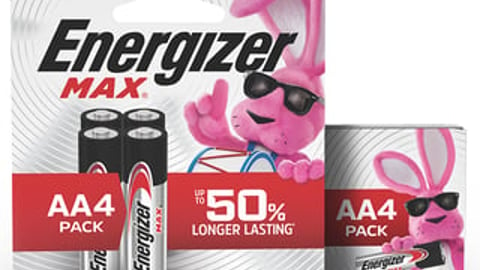Sustainable Doesn’t Always Mean Expensive: How Mars and The Container Store Are Weaving Greener Business
Most people wants to save the planet, to act ecologically morally, to act responsibly for the sake of current and especially future generations. But how much will ESG (environmental, social, governance) cost CPGs, retailers, and consumers? How do companies avoid green-washing or mere performative box-checking, or act cultishly without considering consequences? How do the positive or even negative impacts of sustainability efforts even get measured?
Panelists at a League of Leaders meeting last week at the Amazon Ads Building in New York brought rhetorical and real-world receipts to counter some of today's most common ESG concerns.
“Profit without purpose is not meaningful, and purpose without profit is not possible,” posed Carol Van Den Hende, global VP of digital transformation for Mars, quoting her company’s recently retired CEO, Grant Reid. “It’s not that sustainability is something separate. It’s actually woven into the way we think about business. As we help the company perform better, we’re able to invest more in positive societal impact, which drives trust and partnerships.”
The League of Leaders is a cross-functional gathering of business and IT leaders in retail and consumer goods who meet quarterly to exchange ideas on a range of trends. Learn more about how to get involved.
Many companies believe that their costs will rise if they add sustainability elements, costs that they’ll have to pass on to unwilling consumers. Not only did panelists demonstrate that ESG efforts actually save CPGs and retailers money in the long term, but that customers are willing to pay for sustainable products.
Ezhil Mani, VP of strategic growth and innovation for Infosys, cited examples of ESG efforts from companies to vividly illustrate that “not all sustainable things means it’s going to be expensive. In the long run I think it is going to make it more economical.” Mani also promoted “green IT,” noting that “IT emits more carbon than the airline industry. That is not good, and is only going to continue to grow.”
Mani described the results of a recent McKinsey and Nielsen study of 2017-2022 sales data of 600,000 SKUs across 40,000 brands and roughly $400 billion worth of transactions, divided between products bearing sustainability labels and those that didn’t. “Very clearly, the products that have sustainability tags are selling better, and the customers are willing to pay more money for it.”
Getting commitment on ESG efforts should become easier. Judy Moon, VP of market development and strategic sales for Digimarc, related what she heard from C-suite executives at the recent Consumer Goods Forum in Kyoto. “There is CEO level commitment to help tackle this [sustainability] problem,” she reported. “It’s no longer a cultish thing, it’s not the box we want to check off anymore. It is a main issue that CEOs are now focused on.”
Sustainability isn’t just for big companies, and it does require patience. Ivet Taneva, senior director of ESG for The Container Store, cautioned companies not to be afraid if they’re just beginning.
“Two or three years ago we didn’t have a strategy put together,” she noted. “Just because we’re a smaller company we always would like to do better, better the environment and for people in the communities that we operate in. But, again, I could not emphasize enough: It’s a journey.”
To the panelists, the consequences of not acting are clear, both from a moral as well as a business point-of-view. Moon recounted a candid conversation with her 21-year-old daughter, in which the college junior scolded her mother, telling her that the elder Moon’s generation was f-ing up the planet, and they were going to have to live with it.
“Frankly, I don’t know how many of you have children. But it’s not just for businesses, it’s not just for government. It’s for all of us, because, honestly, nothing else matters if we don’t have a sustainable planet,” said Moon. “I think that’s pretty clear.”






